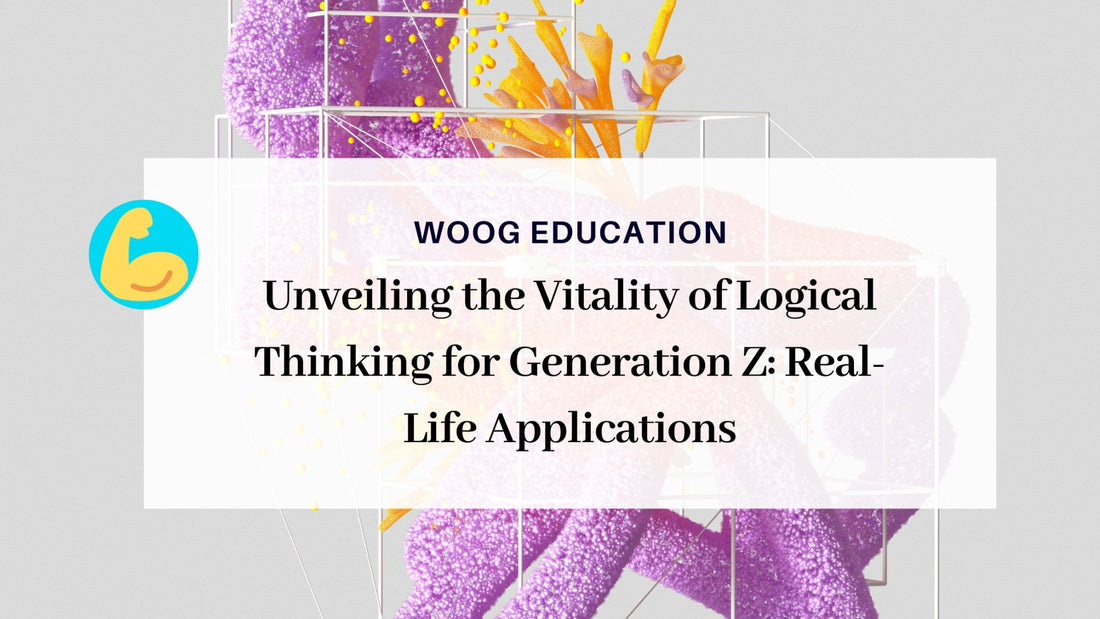In an era marked by rapid technological advancements and information overload, the significance of logical thinking cannot be overstated, especially for Generation Z. Defined as individuals born between the mid-1990s and early 2010s, Gen Z faces a world characterized by complexity, innovation, and constant change. In this context, nurturing logical thinking skills is not just beneficial but indispensable for their personal and professional growth.
- Critical Problem Solving
Logical thinking forms the bedrock of critical problem-solving abilities. It involves assessing situations objectively, analyzing information, identifying patterns, and formulating sound solutions. For Gen Z, facing multifaceted challenges in a fast-paced world demands the ability to dissect problems and devise effective strategies, making logical thinking a crucial skill set.
- Making Informed Decisions
The ability to think logically enables Gen Z to make informed decisions based on evidence and reasoning rather than impulsiveness. In an age inundated with diverse viewpoints and information sources, discerning fact from fiction and making well-grounded choices is paramount. Logical thinking empowers them to navigate the complexities of decision-making in both personal and professional spheres.
- Adapting to Technology and Innovation
Gen Z is the first generation to grow up fully immersed in a digital world. Logical thinking aids in adapting to ever-evolving technologies, understanding algorithms, and deciphering digital information critically. It enables them to harness innovation effectively, fostering creativity while maintaining a structured approach to problem-solving.
- Enhancing Academic Achievement
Logical thinking significantly impacts academic success. It underpins subjects like mathematics, sciences, and even humanities, promoting analytical reasoning and a systematic approach to learning. Gen Z's proficiency in logical thinking contributes to their academic achievements and prepares them for higher education and future careers.
- Real-Life Applications in Various Fields
The real-life applications of logical thinking span across diverse fields. In entrepreneurship, it aids in designing business strategies and problem-solving. In healthcare, it supports diagnosis and decision-making. In creative industries, it fuels innovative solutions. Across all sectors, logical thinking is the backbone for efficient operations and innovative advancements.
- Building Strong Interpersonal Relationships
Logical thinking is not limited to analytical prowess but extends to interpersonal skills. Gen Z equipped with logical reasoning can communicate effectively, resolve conflicts objectively, and understand differing perspectives, fostering strong relationships in personal and professional settings.
- Encouraging Critical Skepticism and Ethical Judgment
Logical thinking encourages critical skepticism, urging Gen Z to question information, consider diverse viewpoints, and discern biases. It instills ethical judgment, guiding them to make decisions that align with moral values and societal well-being.
Conclusion: Empowering Gen Z Through Logical Thinking
In conclusion, logical thinking is an invaluable asset for Generation Z, equipping them with the ability to navigate complexities, solve problems, and make informed choices in a rapidly changing world. Its real-life applications extend beyond academia, influencing personal development, career growth, and societal contributions.
By fostering logical thinking skills, educators, parents, and society at large empower Gen Z to thrive, adapt, and contribute meaningfully in an evolving global landscape.
